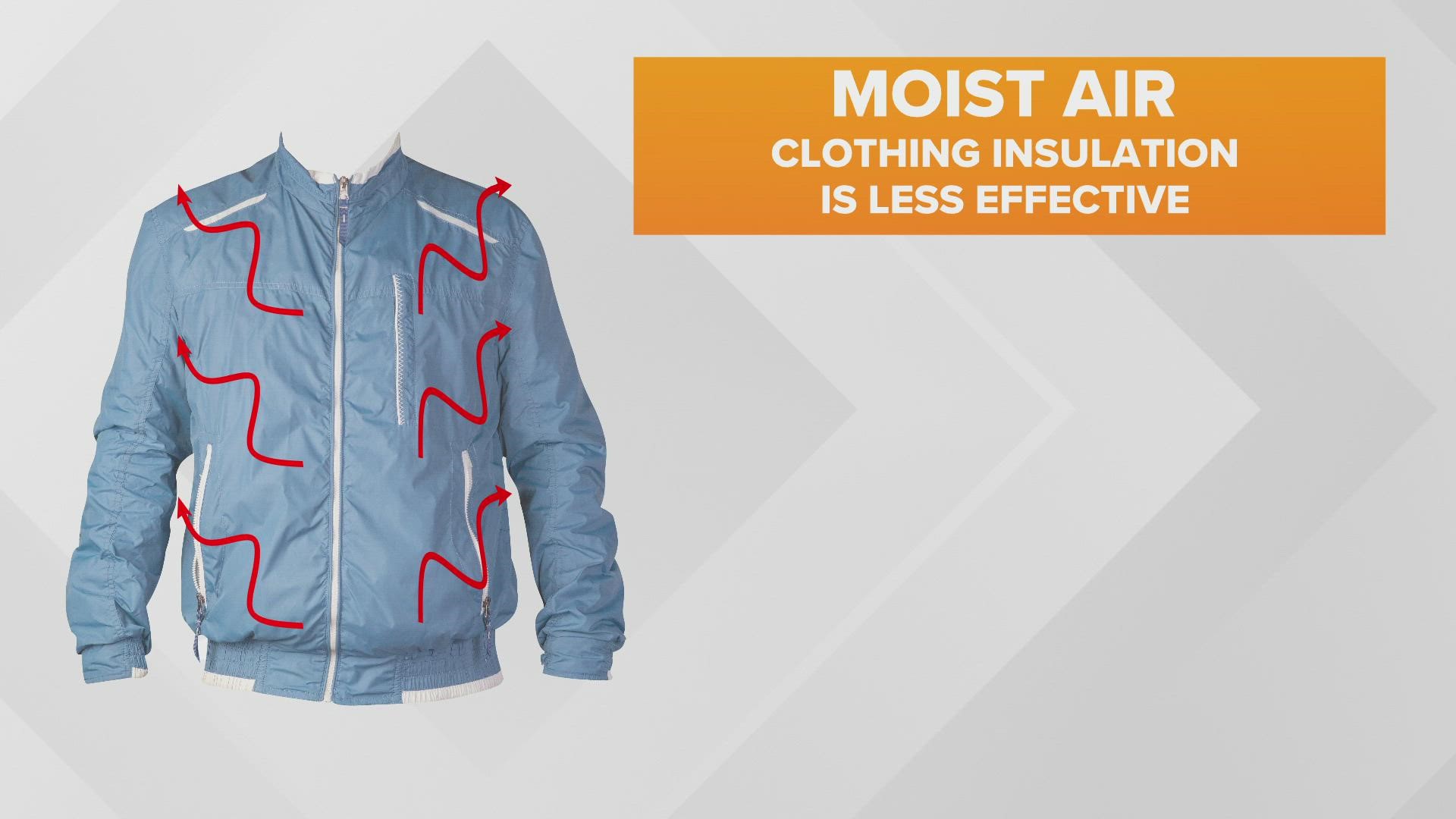DES MOINES, Iowa — Have you ever noticed feeling colder on a damp cold day versus a dry, cold day? It's not necessarily something that comes to mind every day, but is probably something most people have experienced at some point.
Essentially, the human body feels more chilled on a cold day with high humidity, and less chilled on a cold day with lower humidity.
This explains why a cloudy, breezy and chilly day might feel worse than a sunny, calm, yet frigid day.
At first, this concept seems a bit counterintuitive because higher humidity actually forces our bodies to evaporate less water, which would result in less cooling.
However, we still feel colder on a day with higher humidity, and it's due to the clothing we wear, of all things.
As humidity in the air rises, clothing's insulation becomes less effective because moisture gets caught on the clothing's fibers.
This is referred to as the wicking effect in clothing, according to scientists at the Iowa State University Department of Agronomy.
Even on days with higher humidity, our clothes may not seem wet, but the air's humidity can create a thin layer of moisture and therefore results in a greater transfer of heat through the clothing.
This notion holds true regardless of the exact type of clothing we choose to wear, even if it seems like the cozy sweater will warm us up.
On the other hand, dry air makes the clothing's insulation much more effective, and therefore makes us feel less cold.
► Download the We Are Iowa app
► Sign up for Local 5's "5 Things to Know" email newsletter
► Subscribe to Local 5 News on YouTube
Watch more Local 5 Weather Lab videos on YouTube

